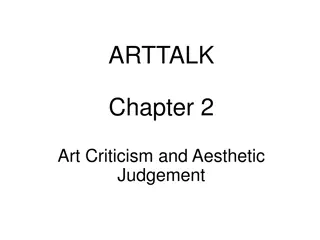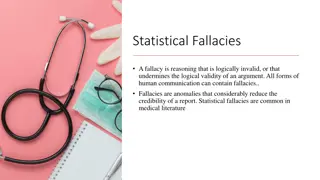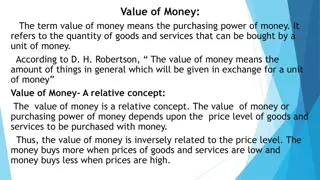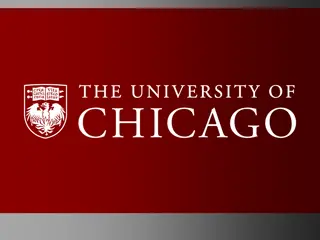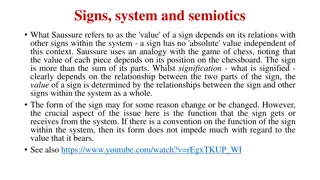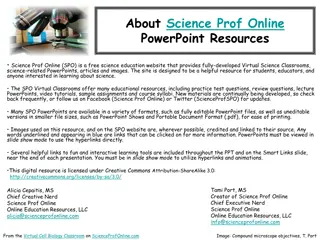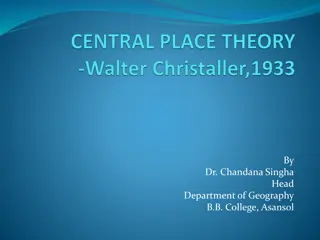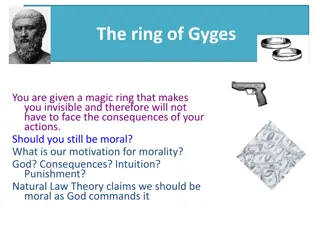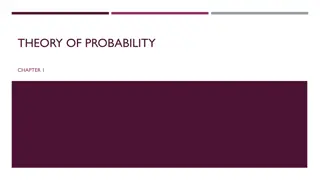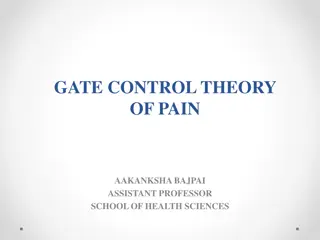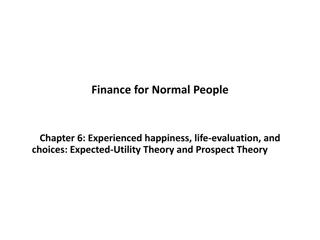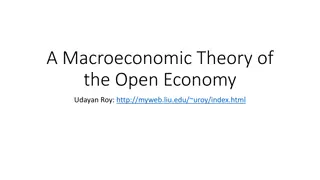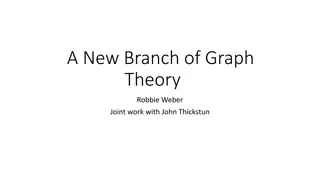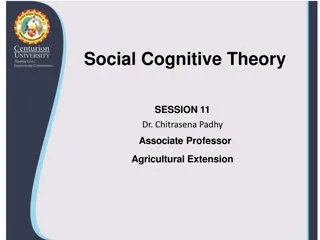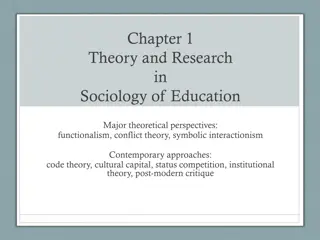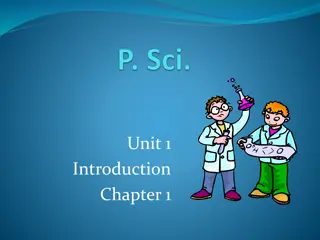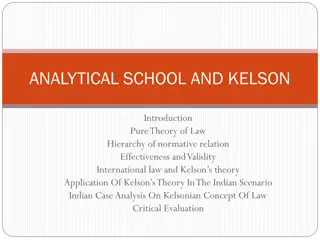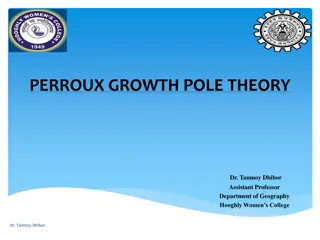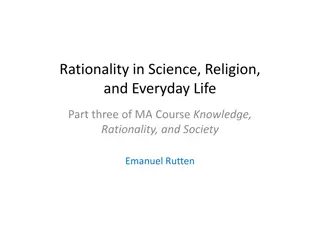Objectivity, Value Judgement, and Theory Choice in Science
Thomas Kuhn's work explores the subjective elements in theory choice, highlighting that theory selection is not solely based on objective algorithms. He discusses the structure of scientific revolutions, where science shifts between normal and revolutionary phases. Kuhn's ideas have faced criticisms, leading to discussions about relativism and the role of subjectivity in scientific progress.
Download Presentation

Please find below an Image/Link to download the presentation.
The content on the website is provided AS IS for your information and personal use only. It may not be sold, licensed, or shared on other websites without obtaining consent from the author. Download presentation by click this link. If you encounter any issues during the download, it is possible that the publisher has removed the file from their server.
E N D
Presentation Transcript
Objectivity, Value Judgement, and Theory Choice by Thomas Kuhn Presented by Brett Park
Two Theses Thesis 1: there is always subjective elements to theory choice, or, there is no single objective and rational algorithm for theory choice Thesis 2: Subjectivity in theory choice is an essential part of science
Overview Review of Kuhn and his critics First Thesis Second Thesis Epilogue Gems
The Structure of Scientific Revolutions Science alternates between periods of normal and revolutionary science Normal science is highly dogmatic by operating within a paradigm, and its primary operation is puzzle solving Eventually, enough unsolved puzzles, or anomalies accumulate, and a period of revolutionary science begins Revolutionary science is undogmatic as new paradigms are considered However, Kuhn does not think that choosing a new paradigm is entirely rational Justification is circular Paradigms are incommensurable
Criticisms of Kuhn Leads to relativism Dudley Shapere, p. 393 Makes theory choice a matter of mob psychology Imre Lakatos, p. 178 Acceptance by social scientists as evidence of the Strong Programme
First Thesis Thesis 1: there is always subjective elements to theory choice, or, there is no single objective and rational algorithm for theory choice
Five (non-exhaustive) Criteria for Theory Choice Accurate: agreement between consequences of a theory and observation Consistent: not to contradict itself or other accepted theories Broad in Scope: extends beyond what it was initially designed for Simple: unifying disparate phenomena with few posits Fruitful: disclose new phenomena, opens new areas of research
Difficulty 1: Criteria Individually Imprecise There is disagreement about how to apply an individual criteria in specific cases Ex. Only certain notions of Simplicity favored Copernicus over Ptolemy Ptolemaic Model Copernican Model
Difficulty 2: Criteria Conflict with Each Other Disagreement about how to weigh different criteria Ex. Ptolemaic model was more consistent with existing science, while Copernican model was (arguably) simpler Ptolemaic Model Copernican Model
Focus on Historical Details on Individual Scientists In order to understand why scientists choose one theory over another, historical details of individual scientists need to be examined How entrenched was a scientists in the old theory? Had they seen success advancing the old theory? Did that success depend on concepts and techniques challenged by the new theory? How did other philosophical/non-scientific commitments affect their readiness to accept the new theory? Ex. Kepler s adoption of Copernican model
No Decision Algorithm Kuhn s point is merely that there are both objective and subjective factors in theory choice Alternatively, there is no single decision algorithm which would rationally constrain theory choice to a single answer in every situation No unambiguous and exhaustive criteria No single correct weights for those criteria
Contexts of Discovery/Justification Distinction between the creation of new ideas and the justification of those ideas Critic: Contexts of discovery have Kuhn s subjective elements, but the context of justification is objective Kuhn: Reject this distinction as a good idealization We cannot trust scientific pedagogy, or textbook science , to give us an accurate account of the context of justification better than the context of discovery
Second Thesis Thesis 2: Subjectivity in theory choice is an essential part of science
Value Theory Values and norms often conflict, and rational people committed to the same values can disagree No decision algorithm ex. William David Ross Not a cause for abandonment of values Criteria of choice are just another set of values
If We Had a Decision Algorithm... All scientists would arrive at the same conclusion Set the bar for new theories too low, and we have constant revolutions Set the bar too high, and new theories are never attempted The heterogeneity of criteria application encourages a healthy amount of novelty
Epilogue Clarifications on: Value Invariance Partial Communication
Value Invariance Assumed that values/criteria of choice remains fixed over time Rather, those values gradually evolve as science progresses Adding new values Different application of values Weights associated with them
Partial Communication Assumed that communication between holders of different theories is unproblematic In Structure, he calls them conversions rather than choices Like a gestalt switch, we cannot hold both theories in mind at a single time Further reinforces the message of the paper Duck Rabbit
Gems Illustrates a specific purpose for history/philosophy of science Uses historical examples Interesting paper structure assume opponents framing, then reinterpret


